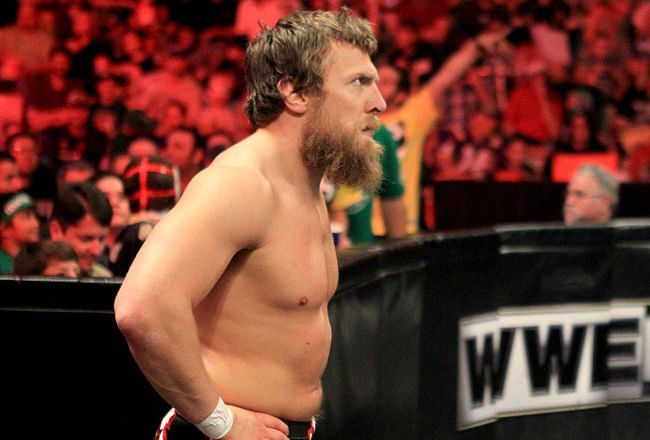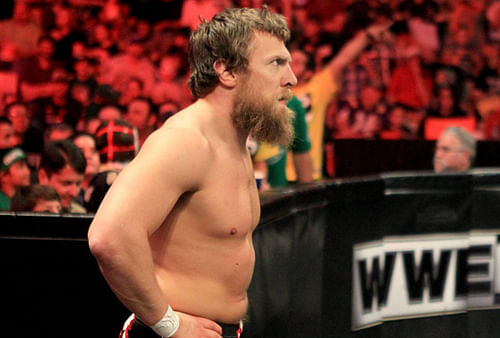
WWE: The importance of a Cinderella story

Professional wrestling is a lot like a movie. There is a reason why it is termed as a ‘Male soap opera’, and one can draw similarities between professional wrestling and a theater. The thread that binds the industry and its fans is intangible, and one has to understand the psyche of individuals to get a better idea about why professional wrestling industry has lasted for as long as it has.
This puts it in a completely different league, unlike sports or other forms of entertainment. Professional wrestling isn’t a movie, nor is it a senseless form of drama. The subtlety and the essence of professional wrestling lies in playing around with the fans, and making them live through the characters portrayed on screen.
Why were people crying during the Macho Man-Miss Elizabeth wedding or when they got back together on-screen? Why did the fans litter the WCW ring when Hulk Hogan turned on them, joining forces with the Outsiders in ’96? The answer to that makes professional wrestling one of its kind, and one of the greatest spectacles in the world.
One of the greatest assets professional wrestling has is to make the fans experience things they would’ve only dreamt of. Whether it is as simple as saying ‘No’ to your boss, or flipping the world and doing things your way, people have lived through the characters, making them ‘larger than life’.
It isn’t just the performer who has to be credited for his success, but his character goes a long way in making him successful. One of such ‘storylines’ is that of an underdog, who defies the odds and gets to live his dream. This formula has been an integral part of professional wrestling right from the very start. Whether you talk about Ricky Steamboat defying the odds and conquering the NWA, or Hulk Hogan defeating Andre the Giant, the ‘Cinderella’ story of these performers has always worked.
In WWE, the use of these ‘underdog’ performers or the ‘Cinderella’ story has always been tweaked, but the consequences have always been the same. After all, who’d want to watch a dominant force taking down everyone, and being indestructible? Would you watch your school bully take everyone down and stay dominant? How many of us always wanted to be the kid in school who’d stand up to that bully and take him down, thus earning all the praises and the glory?
Professional wrestling plays on these ‘wants’, something that we were never able to do, but would want to live through someone who would. The David-Goliath story wouldn’t be as popular if David never defeated Goliath. What is the fun in the big guy always defeating the smaller guys? Or when someone can’t reach his goals and dreams because of all the obstacles?
The best example would be the Stone Cold Steve Austin-Vince McMahon rivalry. There is a reason why this rivalry is regarded as the greatest in professional wrestling history. Looking at it from a distance, it is very simple; it is about an employee doing things his way, and turning on his boss who wanted to assert his dominance on his employees and the company.
McMahon took the simple concept of employees wanting to get back at their bosses, and created magic. If Austin got his hands on McMahon in the very beginning, it wouldn’t have been effective. Instead, Austin had to overcome the odds stacked against him, making his revenge all the more sweet. The end result was the ‘underdog’ defeating the odds and getting his hands on the boss.
Performers from Bret Hart to Shawn Michaels also went through a similar story, albeit their claim to fame was the ‘smaller guy claiming bigger things’, something that WWE is now doing with Daniel Bryan. If it weren’t for underdogs in professional wrestling, no one would have cared about winning or losing.
If you pit Mark Henry against the Big Show, that wouldn’t create any impact, but when Eddie Guerrero defeated Brock Lesnar, it was received very well by the fans. Similarly, Chris Benoit overcoming the odds to become the World Heavyweight champion at WrestleMania 20 was seen as the true underdog story of professional wrestling, and on that night, along with Chris Benoit, there were thousands of fans who shed tears at Madison Square Garden, as they knew the journey of Benoit and the hardships he faced which culminated in him winning the title.
Although there are a lot more similar examples, it gives the importance of an underdog in professional wrestling, and his ‘Cinderella story’. Today in the WWE, Daniel Bryan finds himself in a similar situation, and that is why the crowd is firmly behind him. No matter what you do, if your character connects with the crowd, and they get to live through you as an individual, that is where you create magic.
Be it a character who chases his girl, and finally gets her after all the hardships (Savage – Elizabeth), or someone who sets on an impossible dream (Story of Bret Hart and Shawn Michaels), or someone who seeks redemption (The Austin – McMahon saga), it is all about making the fans live through you. That is where the Cinderella story or the underdog storyline always worked, and that is why professional wrestling will always be much more than just ‘entertainment’.